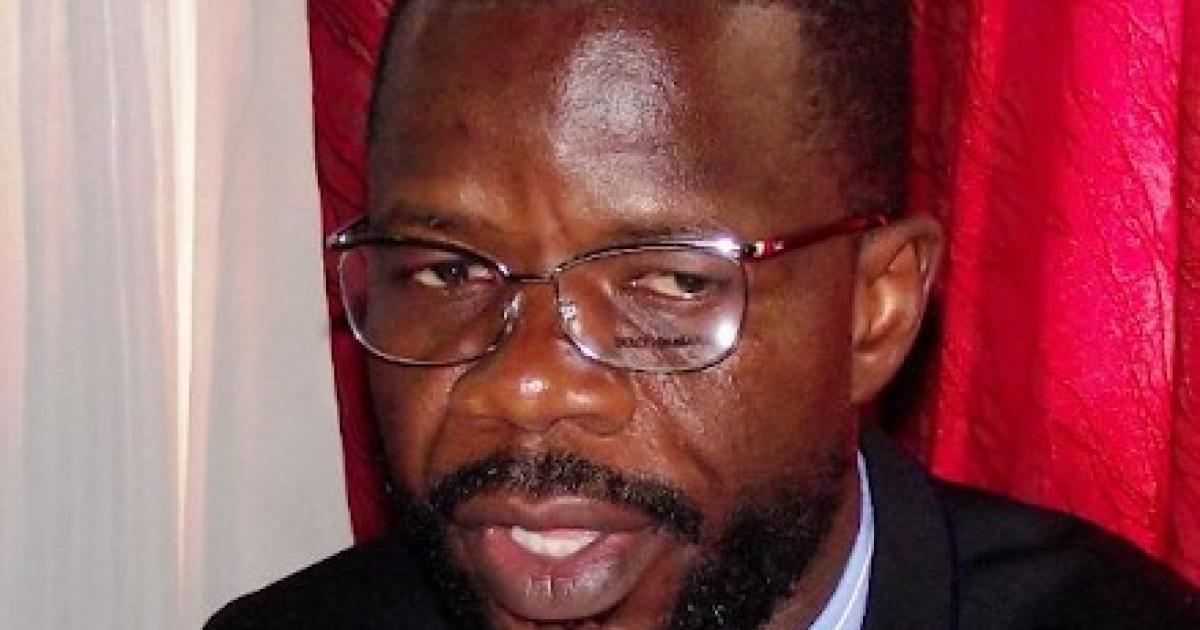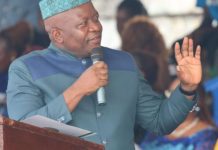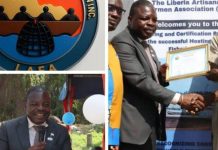Africa-Press – Liberia. The Chairperson of the Governance Commission, Garrison Yealue, has vowed to campaign for President George Weah’s re-election in violation of the act that create the institution which he held and the Code of Conduct.
Yealue had posted on Facebook, expressing his support for President George Weah’s re-election bid — contrary to Section 5.3.4 of the Governance Commission Act — which states that commissioners must maintain a non-partisan stance to prevent the commission’s agenda and processes from being influenced by political biases.
His action also violated Section 5.1.3 of the Code of Conduct for Public Officials, which explicitly prohibits public officials from engaging in political activities while in office.
Yealue, who is a former Representative of Nimba County, was nominated by Weah a month ago and subsequently confirmed by the Senate for the position of chairman of the Governance Commission.
In his Facebook post, he wrote: “I am personally endorsing President George M. Weah for re-election, and I will actively work to persuade my constituents to support him as well. However, it is essential that we adhere to the rules of fair play in our political endeavors. Baseless accusations against me will not serve any constructive purpose.”
Yealue’s actions, according to Elections Coordinating Committee are troubling as it undermines the Commission, which is tasked with monitoring and evaluating the performance of governance institutions, assessing the overall governance framework, and evaluating the performance of the institutions that constitute Liberia’s governance infrastructure.
“It is unfortunate that Yealue is breaching the laws despite being aware that the commission’s responsibility is to promote good governance, formulate appropriate policies, and advocate for integrity at all levels of society and within both public and private institutions,” Oscar Bloh, ECC Chairperson said.
Bloh added that if nothing to stop Yealu’s unlawful behavior, other public officials would follow, saying “Our governance system and practices have been challenged due to impunity and the lack of adherence to the rule of law.”
“Election does not guarantee democracy so it is the collective responsibility of civil society organizations including election observation groups to confront practices and behaviors that undermine the quality of our democracy,” he said.
The Governance Commission was established as part of the 2003 Accra Peace Accord to address Liberia’s multitude of challenges arising from the 14-year civil war.
The war had resulted in a complete breakdown of democratic governance, with rebel factions assuming control over government functions, appointing senior officials, and even installing their own “civil servants.” Some political parties today are remnants of these rebel factions.
In 2007, the Governance Reform Commission renamed the Governance Commission through a National Legislative Act on October 9, to further advance governance reforms in Liberia.
Meanwhile, ECC) has signed a US$100K partnership agreement with the Irish government to help deepen and consolidate democracy in Liberia.
The partnership, which runs from May 2023 to May 2024, was signed with the office of the Irish Development Cooperation and will focus on four interrelated pillars, which include Citizens’ participation, electoral integrity, and electoral security.
The project is also a grant complement to the current election project funded by USAID.
Bloh noted that under the first pillar, the focus of the intervention will be the provision of civic and voter education, especially for first-time voters to enable them to make informed decisions.
“The second pillar deals with promoting electoral integrity through the deployment of Three hundred (300) observers on Election Day,” Bloh said.
For pillar three, Bloh added, “focuses on building citizens’ trust in the police through the conduct of police-community dialogues due to police that is under-resourced in terms of personnel, logistics, and finance for operations.”
The fourth pillar, he said, highlights consultations on electoral reforms. “On October 10 this year, Liberia will be conducting its fourth consecutive general elections since the end of the civil war in 2003,” Bloh asked.
On the transition from a manual to a biometric voter registration system, Bloh said he had consistently said that if properly managed, the system can improve the quality of the country’s democracy because credible elections are built on a credible voter roll.”
For More News And Analysis About Liberia Follow Africa-Press






